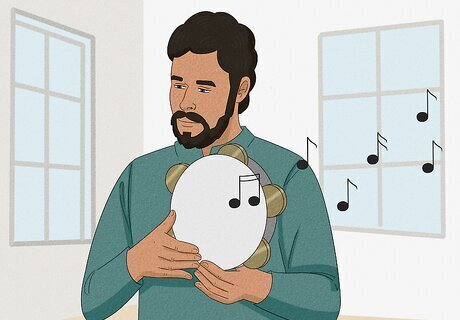
views
Is music haram according to Islam?

Some Muslims consider music haram. Whether music is haram is a long-standing debate among scholars, historians, and devout followers alike. The Quran, or Islam’s holy text, does not directly address music, but does mention “idle talk” as being a slippery slope toward haram, which some theologians have taken to include music, along with gossip and slander. Additionally, among the thousands of hadiths (or records of the Prophet Muhammad’s actions, sayings, and codes of conduct), several passages condemn music in various forms, including singing and dancing. One excerpt reads: "Singing sprouts hypocrisy in the heart as rain sprouts plants." Another hadith details Muhammad’s answer to when the earth would be swallowed whole in an apocalyptic event. He replied, "When female singers and musical instruments appear and alcohol will (commonly) be consumed.” The authenticity of these records has long been debated. The hadiths remain open to interpretation, offering no definitive answer. In Surahs Al-Mu'minun (23:3) and Luqman (31:6), Muslims who avoid “idle talk” and “humble themselves in prayer” are praised. Moreover, Muslims who “employ theatrics,” such as singing and dancing, to lead followers away from the word of Allah are condemned to suffer “a humiliating punishment.” Stricter Muslim schools of thought, like Salafi and Wahhabi, strongly oppose music and consider it haram. They believe it is closely associated with alcohol and hedonism, and ultimately distracts from the word of God. Meet the wikiHow Expert Belal Elkadri is an Islamic education expert and motivational speaker who’s passionate about challenging the stigmas plaguing the Muslim community and bridging the gap through education.

According to many Muslims, music is not haram. Many modern Muslims agree that music is not haram as long as it doesn’t encourage or mention immoral acts, like intercourse outside of marriage and drinking. In fact, music prohibition is quite rare in Muslim majority countries. Except for places under rebel rule, like the Taliban in Afghanistan, most Muslim countries allow music to be played, with some minor limitations. For example, music is discouraged from being played out loud during the holy month of Ramadan, but may still be listened to on headphones. Some Muslims find that music is halal as long as it’s instrumental, and certain instruments like the tambourine and the Daf (or one-sided drum) are halal. Others argue that music is only haram if it involves singing, as this falls into the category of "amusement of speech," as noted in a hadith.
What does "haram" mean in Islam?

Haram refers to things that are forbidden in the Muslim faith. According to Islamic education expert Belal Elkadri, “haram means that things are prohibited.” For example, eating pork is considered haram because pigs are unclean. “[A pig] will eat its own feces, it'll eat its own dead [young], and it has a very slow digestive system,” Elkadri explains. “As Muslims, we are always [prioritizing] cleanliness… even before we pray, we're cleaning ourselves.” Backbiting, or speaking negatively about someone behind their back, is also haram. Additionally, lying and slandering are also considered haram. Having sexual intercourse outside of marriage is forbidden as well, as is drinking alcohol. Elkadri cites one breach of Islam’s tenets as the worst of all, akin to worshipping false idols. “The biggest thing that is haram, that God will not forgive, is associating partners [or idols] with Him (Allah),” which is called “shirk.” Elkadri shares that Allah will not forgive this, as Islam is built on the belief in the oneness of God. What happens if you partake in haram? Elkadri shares that if you do partake in haram, you receive “bad deeds” in return. But you are likewise rewarded for staying away from haram.
Final Takeaways
There is no definitive answer as to whether music is haram or not. Differing schools of thought, unconfirmed reports from the ancient Islamic world, and varying degrees of religious austerity tend to influence interpretations of this belief. In this day and age, the general consensus is that most Muslims don’t find music to be haram as long as there is no vulgar language or immoral implications, it doesn’t affect the person’s engagement with their faith, and is enjoyed in moderation— just like everything else good. Ultimately, listening to music as Muslim depends wholly on them and can be considered a personal choice.




















Comments
0 comment